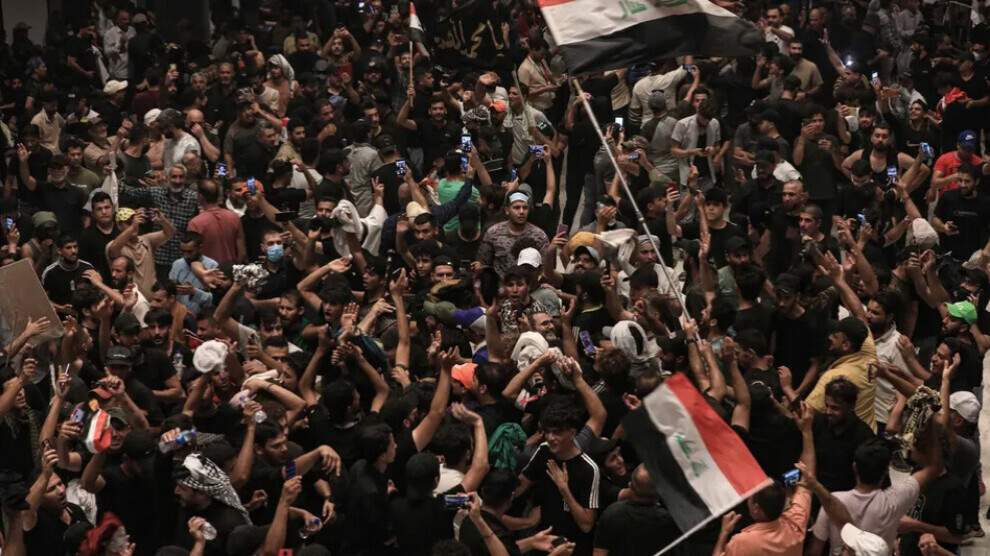Occupation of Iraqi parliament by supporters of Moqtada al-Sadr continues
The occupation of the parliament in Baghdad by supporters of the Shiite cleric Moqtada al-Sadr continues.
The occupation of the parliament in Baghdad by supporters of the Shiite cleric Moqtada al-Sadr continues.

The occupation of Iraq's parliament by supporters of the Shiite cleric Moqtada al-Sadr continues. After the cleric's supporters stormed the government building in the high-security zone in the capital Baghdad for the second time in a week on Saturday, hundreds of other demonstrators from other parts of the country rushed in on Sunday.
On Wednesday, thousands of demonstrators had already briefly occupied the parliament. With a sit-in in parliament, they wanted to put pressure on politicians and prevent the Shiite party alliance around former Prime Minister Nuri Al-Maliki from forming a government.
The so-called coordination framework, to which Al-Maliki belongs, recently proposed former minister Mohammed Shia al-Sudani for the post of prime minister. From the point of view of al-Sadr, who wants to free the country from "Iran's political influence", al-Sudani is far too close to ex-Prime Minister al-Maliki and thus to Iran.
Meanwhile, outgoing Prime Minister Mustafa Al-Kadhimi, who is currently Commander-in-Chief of the Iraqi Armed Forces, has deployed more security forces to the Green Zone. He also called on the political camps to engage in dialogue again. The sessions of the parliament have been cancelled for the time being, as the speaker of the parliament announced.
Moqtada al-Sadr emerged with his Sairun alliance as the strongest force in the parliamentary elections in October last year. However, he could not achieve the important two-thirds majority required for the presidential election.
While the son of a grand ayatollah managed to forge a coalition with Kurdish and Sunni Arab parties, a pro-Iran bloc caused a stalemate in parliament. Then, in June, the 73 Sairun MPs withdrew en masse from Iraq's 329-seat parliament. But that same month, 64 new MPs were sworn in, making the pro-Iran bloc the largest in parliament.
The mobilization of Sadr supporters is seen as a message to his rivals that there will be no new government "without his approval".